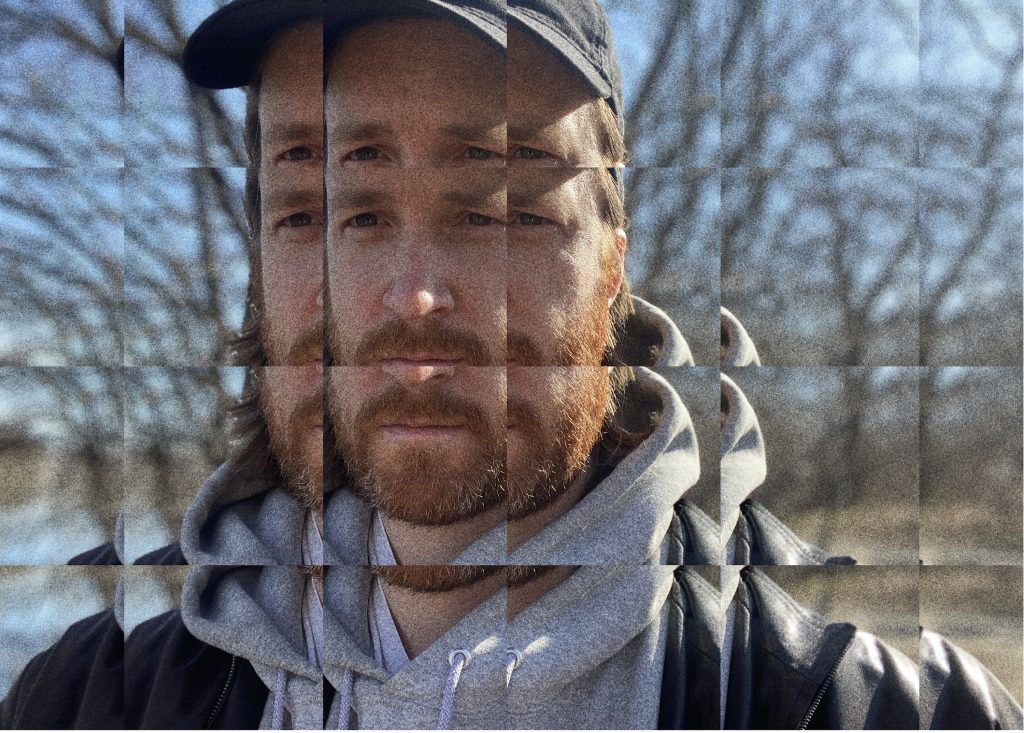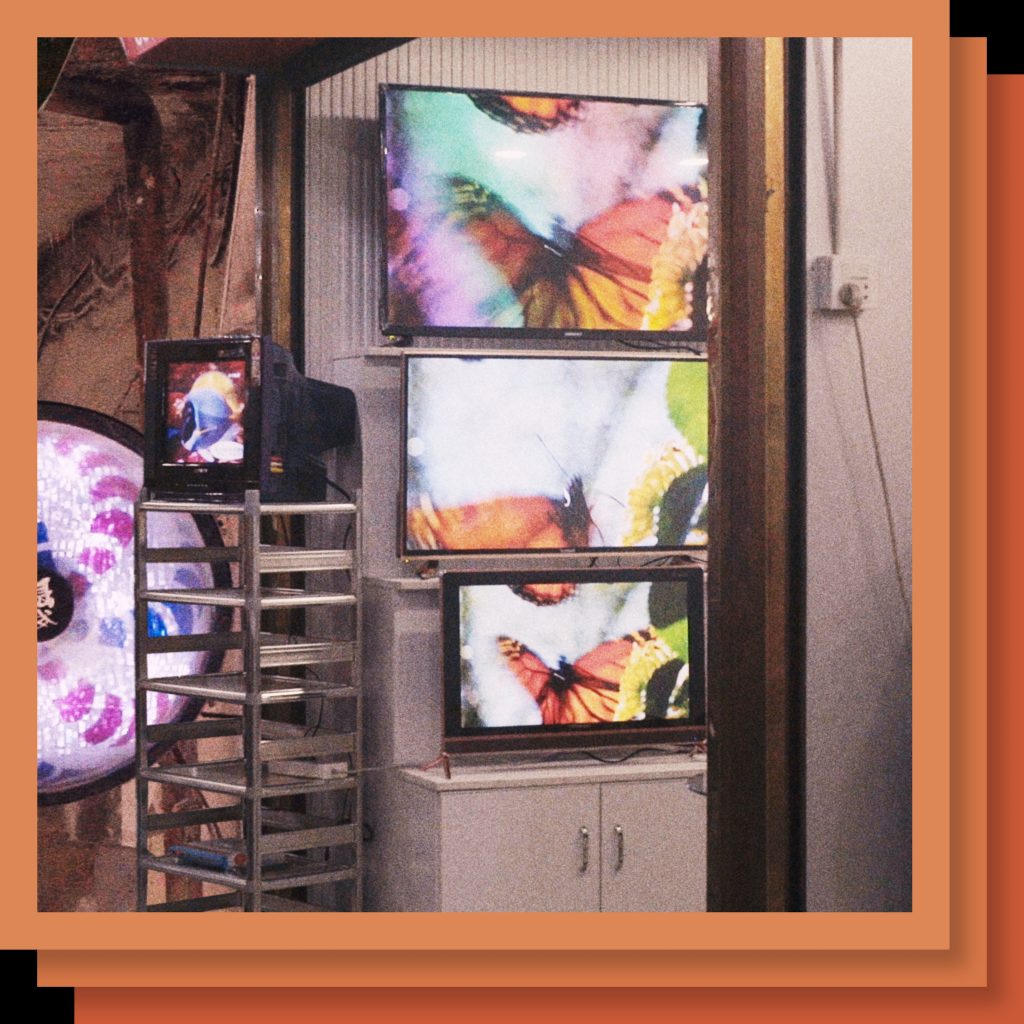E.VAX
E.VAX (Because Music)
Contact Jacob Daneman, Patrick Tilley about E.VAX
Towards the end of E.VAX’s new self-titled album, on the song “Koko,” you hear a voice say tentatively, “I want to know how to get along with people, how to deal with people.” It feels confessional in its vulnerability. But whose voice is it? It’s not his. And it’s not sung, so it’s not exactly a lyric. So what is it? Well, in a literal sense it’s a recording of a woman in a private conversation, speaking in a new language. In a more spiritual sense, it’s an unguarded snippet into one person’s desire. E.VAX’s album, a collection of instrumental songs, is dolloped with these moments of exploratory dialogue, disembodied moments that are equally disorienting and moving.
Performing as half of Ratatat for more than the last decade, Evan Mast’s music has reached an enormous audience with its bombastic merge of rock and electronic music. Mast was able to take his sometimes quieter musical instincts and amplify them. Listening to his guitar melodies, he’s able to make small staccato moments sound enormous and bright behind the boom of drums. Like his music as E.VAX, there’s sometimes bigness but there’s always poignancy.
The fame of Ratatat brought him on tour around the globe, which eventually instilled in him a desire to be untethered. “There’s something really attractive to me about the feeling of being an alien, not understanding the language, or even the characters, and being completely lost,” he says. “It opens up more possibilities to discover something new. I feel like I know the US really well at this point. It seemed like the best way to expand was to get to the furthest reference point from here.” That was his goal in 2020, when he planned to spend time in China, where he’d previously begun filming a video project. The pandemic cancelled that. He found himself isolated, just not in the way he had imagined.
In addition to his work in Ratatat, Mast has spent the last few years providing squiggly, ecstatic beats for rappers and singers. He’s spent ample time in Wyoming with Kanye West, producing the organ-heavy “Selah” for his Jesus Is Kingalbum and the loping “Reborn” for West’s collaborative album with Kid Cudi, Kids See Ghosts. Working outside of Ratatat, and as a producer for others has been the bridge to return to his solo music. “Doing production work for other artists was really eye opening,” says Mast. “I had all these opportunities to observe other people’s creative processes. Aside from all the new techniques I picked up along the way, it also changed my perspective dramatically. I have a whole different set of values with my music now.”
For his solo album, Mast loosened his attitude towards production, looking to capture some of the excitement of creation. He recorded at home, and then midway through the pandemic he spent time in Montana, recording in a friend’s art gallery. The blank space and isolation after so much studio time in close quarters allowed for a new looseness. He’d play songs at the wrong speed to see how it changed what he heard, or deliberately leave a melody untouched for months and then improvise over it after playing it anew for the first time. Unable to get lost in real life, he got lost in music. “I used to be way more precious,” Mast says about his songwriting. “A lot of this stuff on the record is about trying to skip the brain processes that can get in the way of making something that really feels sincere.”
The E.VAX project began over two decades ago, when Mast was in college. Playing on early audio software, using one synthesizer and recording to a four track, Mast hoped to build on the melodic moments only found in small slices of his favorite albums by often aggressive electronic artists. “The early E.VAX stuff was a reaction to that, trying to put more melody in that style,” he says. The other element was simply to learn how to program music digitally. “I was reacting to making music on a computer and all the possibilities that opened up.” Twenty years later, he is still interested in creating ebullient music, but those possibilities are now so much greater.
The throughline between the songs on his new album is not a certain signature sound, but Mast’s feel as a producer. Though one song may lean heavier on snappy drums and another on the coo of an organ, they all share a similar sensibility. The songs are sincere, playful, inviting, curious, and contemplative—all characteristics of Mast himself. The album opens with “Rabindra,” its melody built around a warm jaunt across the electric piano before a booming backbeat kicks in. Moments in the song sound like they were recorded underwater, some like they were recorded in a field with cicadas waking up. The bigness of the drums have the feel of a hip-hop track, the keys of jazz, and the sparkling outro of ambient music. But the song is none of the things, living in a liminal space, swimming across genres. It ends with a woman saying, “You made it by yourself.” Or at least that’s what it sounds like.
The next song, “Karst,” another single, replaces keys with harp, a trap kit with hand drums. But the tone is the same. The album proceeds similarly, deeply groovy moments played on an orchestra’s worth of instruments, all dipping in and out of echo and reverb. “Some of my favorite albums sound the same all the way through, records that feel like a place you can go to and you just want to stay there,” says Mast. “Sometimes it can feel a little exhausting to have these massive emotional shifts.”
Mast extends that feeling to the visual half of the album. From footage he shot in China, India, and elsewhere Mast will have a music video for all 12 tracks on the album. Made up largely of videos Mast shot while walking around and sewn together so they pan slowly, there is simultaneously a feeling of stillness and motion, which is amplified when you encounter strangers looking at the camera. It’s unclear if you’re the voyeur or the one being watched. Perhaps both.

